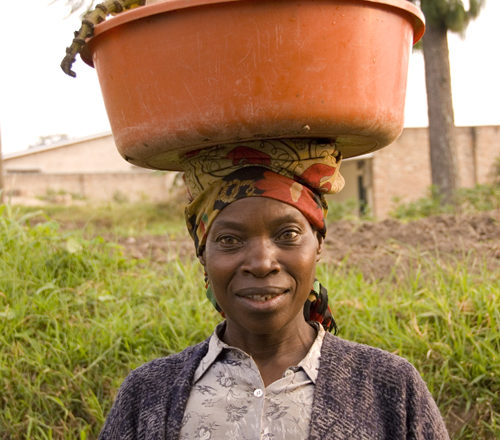In a groundbreaking symposium on women’s access to land in Africa, with mostly researchers and institutional officials as attendees, the Huairou Commission delegation provided a unique community-based perspective. The Huairou Commission delegation of 12 grassroots women leaders from Ghana, Uganda, Tanzania, Kenya, and South Africa participated in two important panels, “Promoting Security of Tenure and Land Rights for Women in Urban Areas” and “Grassroots Women’s Practices on Land Access and Control”.
The International Development Research Centre (IDRC) has supported research and capacity-building for long-term development for forty years. Opening speaker Dr. Connie Freeman, regional Director of the East and Southern Africa Regional Office IDRC affirmed that this was a time to link action research around women’s secure access to land to real action and policy reform, and affirmed that women’s rights to land guarantee their full citizenship. The conference was a chance to consolidate and communicate research findings and analysis from research projects and activities related to gender, women’s rights and access to land in Africa, in order to inform and influence policy, advocacy, and scholarship.
On the first day, Huairou Commission members Fati Alhassan of Grassroots Sisterhood Foundation (GSF) Ghana and Joyce Nangobi from Slum Women’s Initiative for Development (SWID) spoke in the panel, “Promoting Security of Tenure and Land Rights for Women in Urban Areas.” Joyce spoke of the processes they used in community mapping and local dialogues, and the recent success they have achieved with revolving loan funds for securing women’s purchase of land, including 42 women have acquired security of land tenure and certificates of completion was granted by Jinja Municipal Council, and two houses are currently being built. Fati spoke of the tremendous challenge and accomplishments achieved in the GSF Project pilot project they had done in partnership with the Global Land Tools Network facilitated by UN Habitat.
The Huairou Commission lead the session “Grassroots Women’s Practices on Land Access and Control”, moderated by Esther Mwaura-Miuru of GROOTS Kenya, with panelists Emily Tjale of LAMOSA South Africa, Violet Shivutse of GROOTS Kenya, Scolastika Porokwa of MWEDO, Tanzania, and Mastullah Nakisozi of UCOBAC Uganda. They spoke of the realities of grassroots women’s access to land, the strategies they have created and employed to secure tenure and reverse evictions, and called for researchers and donors to partner effectively in action research and invest in long-term organizing and grassroots peer exchange.
Mastullah Nakisozi closed the panel with a moving statement about her own experience. “After I was diagnosed with HIV and my husband died, I was thrown out of my house. That is why I am fighting now, and I don’t want it to happen to anyone else.”
Concluding Recommendations
To date, there has been limited use research around women’s land tenure, and this symposium was meant to be a catalytic opportunity to further push the evidence into real policy recommendations. For the Huairou Commission, it was also a chance to build partnerships with other research institutions and encourage action research in partnership with grassroots groups, and strengthen relationships with UN partners and the IDRC.
Violet Shivutse and Brenda Dosio of GROOTS Kenya were asked to be members of the policy drafting committee that met twice daily to draft the final outcome policy recommendations for the final outcome document, as well as a catalytic document to be used across Africa in policy advocacy and lobbying. Some of these recommendations, such as recognizing that women are not homogenous, and groups with unique needs, such as survivors of conflict situations, HIV/AIDS positive persons, female headed households and the rural and urban poor, must be considered through special measures when developing laws and policies; and Investments should be made to strengthen networks working on women and land rights, to promote learning amongst grassroots groups, land coalitions, and policy makers, and to strengthen their influence in the planning and policy making process. Finally, we stressed that all research is done with grassroots women in the lead, in a manner that ensures that the grassroots women are the collectors and custodians of the data, and that data is used to understand and address real priorities and strategies of communities.
As The Minister of Land James Orengo that Kenya had said in his opening remarks, the symposium was a chance to further galvanize Kenya and the rest of Africa around making these research action results into policy recommendation. Finally, congratulations to IDRC on their anniversary of 40 of groundbreaking development research!


